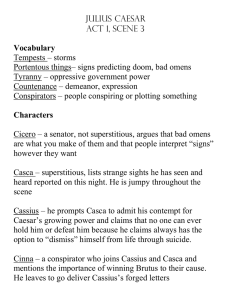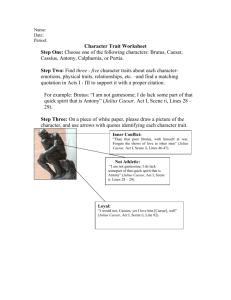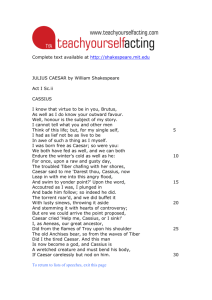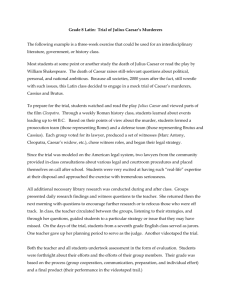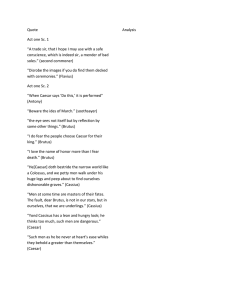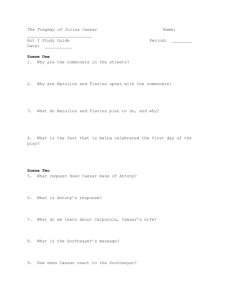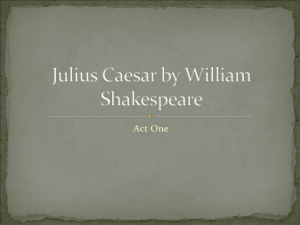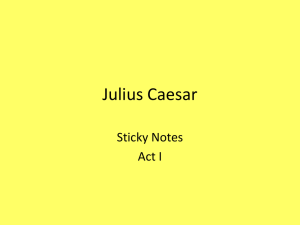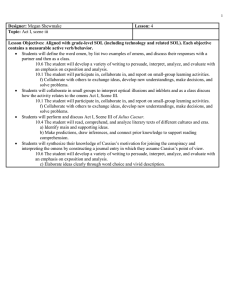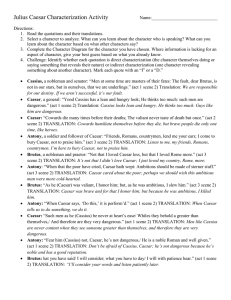Julius Caesar Act 1 As a Whole
advertisement
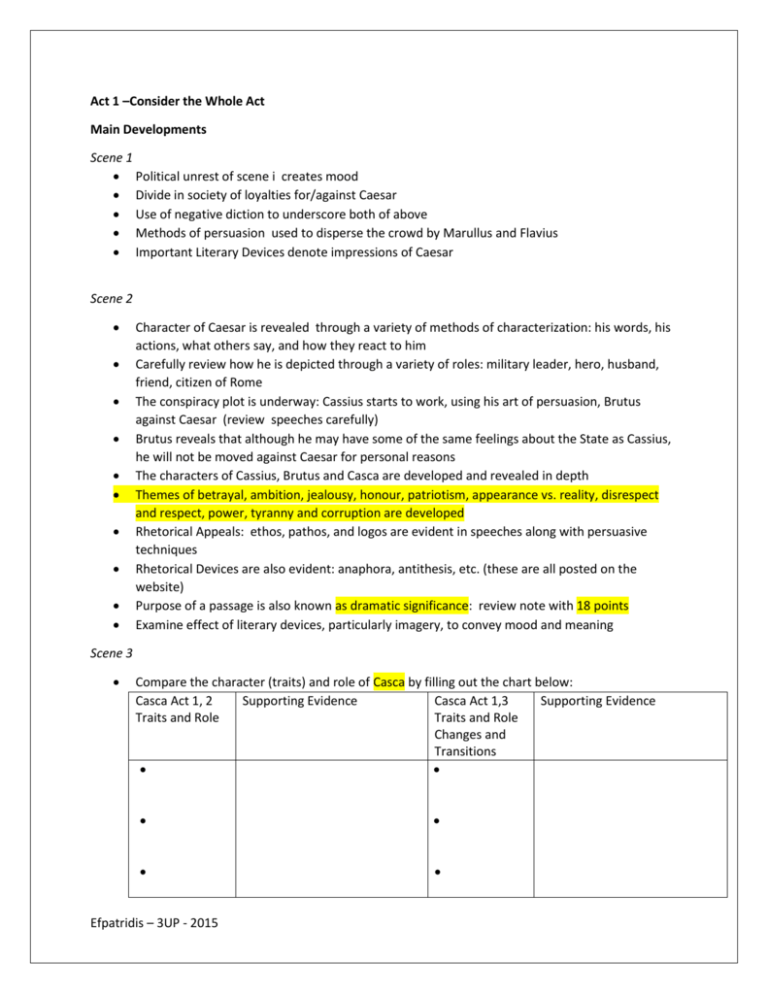
Act 1 –Consider the Whole Act Main Developments Scene 1 Political unrest of scene i creates mood Divide in society of loyalties for/against Caesar Use of negative diction to underscore both of above Methods of persuasion used to disperse the crowd by Marullus and Flavius Important Literary Devices denote impressions of Caesar Scene 2 Character of Caesar is revealed through a variety of methods of characterization: his words, his actions, what others say, and how they react to him Carefully review how he is depicted through a variety of roles: military leader, hero, husband, friend, citizen of Rome The conspiracy plot is underway: Cassius starts to work, using his art of persuasion, Brutus against Caesar (review speeches carefully) Brutus reveals that although he may have some of the same feelings about the State as Cassius, he will not be moved against Caesar for personal reasons The characters of Cassius, Brutus and Casca are developed and revealed in depth Themes of betrayal, ambition, jealousy, honour, patriotism, appearance vs. reality, disrespect and respect, power, tyranny and corruption are developed Rhetorical Appeals: ethos, pathos, and logos are evident in speeches along with persuasive techniques Rhetorical Devices are also evident: anaphora, antithesis, etc. (these are all posted on the website) Purpose of a passage is also known as dramatic significance: review note with 18 points Examine effect of literary devices, particularly imagery, to convey mood and meaning Scene 3 Compare the character (traits) and role of Casca by filling out the chart below: Casca Act 1, 2 Supporting Evidence Casca Act 1,3 Supporting Evidence Traits and Role Traits and Role Changes and Transitions Efpatridis – 3UP - 2015 Omens, dreams, and visions and the theme of the supernatural which add intrigue and suspense are very important in the play Julius Caesar. Remember, the Romans believed in the gods, each having a special power or function. In addition, people during Shakespeare’s time believed that everything in the Universe was linked, so that what happened in the heavens and in nature influenced what happened to individuals, their countries and governments. A storm could be God’s warning of disasters to come. Appearance of strange animals, earthquakes, eclipses and similar events were taken very seriously. It was also believed that people were not always free to control what happened to them. (fate) However, not all people, just like the characters in the play, believed in superstitions and omens. Review the various interpretations of the storm and the relevance of each to the play Each is significant to the development of the plot and revelation of certain characters Consider the following: “Cassius is the prime leader of the opposition against Caesar. He is deceitful and manipulative, and a man motivated by greed and his ambition for power.” “Elements of the supernatural - supernatural acts, dreams, omens, and visions - are used in the play to create suspense.” “Caesar is not depicted as a man to be feared, but rather a man that could be feared if given the opportunity.” Efpatridis – 3UP - 2015
